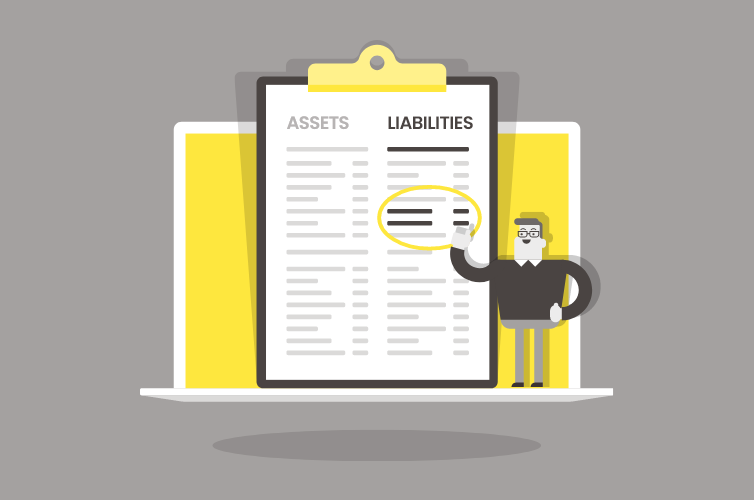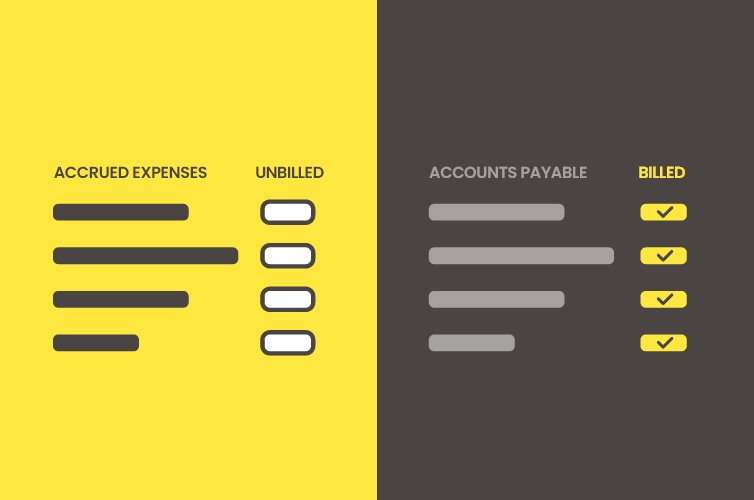Accrued expenses:
What are they and
when are they
accounted for?
Accounting for and closely following your accrued expenses allows you to produce financial statements that are more representative of reality and provide you with a much more accurate picture of your financial situation.
Businesses must take into account the expenses they have incurred in the past and for which payment will soon be due. Accrual accounting allows a business to follow these expenses efficiently (which are considered to be debts), whether they are accrued expenses or accounts payable.
To begin, let’s take a closer look at what accrued expenses are exactly and how you must account for them to benefit from a good overview at the end of each period.
What are accrued expenses?
Accrued expenses are an unpaid expense, an amount that a business owes for a product or service already received. This is an expense that must be accounted for when the product or service is received, rather than when it is billed.
Accrued expenses are considered to be a short-term debt. Even though this debt is still not legally tangible since no invoice has been produced, it still constitutes a liability and is accounted for at the end of the year, even if it is has not yet given rise to an outflow of money.
Here are a few examples of current accrued expenses:
- Interest on loans
- Products or services received
- Employee salaries and vacations
- Income taxes
- Rent
How should accrued expenses be accounted for?
A company's accrued expenses must appear in its balance sheet. As explained in our article
8 accounting terms that all entrepreneurs should know,
a balance sheet is a document which combines all data related to your business’s possessions and debts, at a given time. Your balance sheet
presents your assets, liabilities and capital (what you have - what you owe = what you are worth).

Your accrued expenses must be accounted for as liabilities in your balance sheet and sometimes these expenses will have to be estimated. For recurring expenses, such as rent, the amount is always the same, but for certain sporadic expenses for which you have not yet received an invoice, you can enter your best estimate.
What is the difference between accrued expenses and accounts payable?
Accrued expenses
Accrued expenses are expenses which are known and expected by the company, but which cannot be paid until they have been billed to the company. They are still entered in the balance sheet so that the business has a better idea of the state of its liabilities. This allows management to make better decisions concerning the management of their budget, since all imminent payments are known.
Accounts payable
Accounts payable contain expenses for which the company has been billed, but which have not yet been paid (regardless of the reason).

These two types of expenses are recorded in the liabilities account in the balance sheet. If the business receives an invoice for accrued expenses before the closing of its period, these expenses are transferred to the accounts payable category.
Here is an example that shows both types of expenses:
The multifunction printer at your office breaks down. You do business with a repair company which sends you a specialized repairer. After inspecting the printer, the repairer comes to the conclusion that a part needs to be replaced. He tells you which one and you order it. Once the part is delivered, the repairer comes back to install it.
Upon leaving, he gives you an invoice for his time. Since you have an invoice for this expense, it must be entered in the accounts payable in your balance sheet.
An invoice has not yet been produced for the part ordered and received, but this expense must still be accounted for. It must be entered as an accrued expense in your balance sheet, while you wait for the invoice to be issued.
Benefit from specialized tools
Your accounting software can be used to manage several accounting operations easily and efficiently, including those mentioned in this article. By being specialized for accounting management, your software helps you to be accurate in your reports, greatly reduce the risk of error and closely follow your monthly and annual data.
Are you looking for a solution to manage your accounting? Contact our team of experts to learn more about our many specialized products!
Discover Acomba
The Acomba blog is brimming with articles on business, IT and business management.
Subscribe so you don’t miss a thing!

I am already subscribed